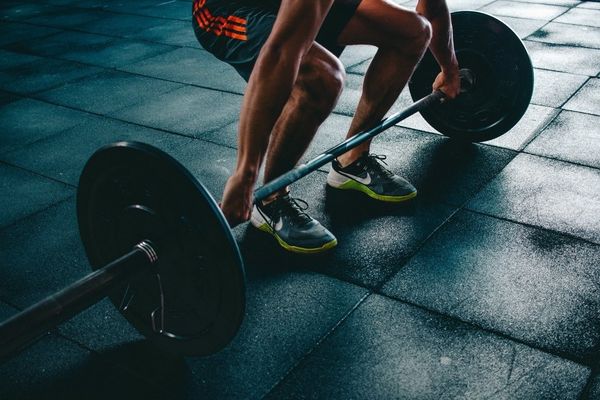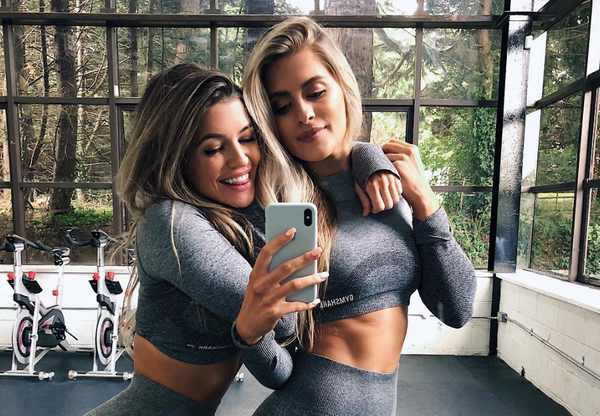A long-time friend and I sat in the early spring sunshine a few days ago and caught up on life. She told me all about a new romance, family tensions, and last semester’s classes. I shared with her stories of studying abroad, winter break, and my recommitting to an outpatient eating disorders treatment program.
She listened with sisterly attention as I confessed that my eating disorder had become a crippling distraction again overseas. I vented my anger at not having been free to fully live my dream of exploring England because ED became so suffocating at times that all my energy was devoted to figuring out how to make it through the day. I mourned the forfeited adventures with friends traveling to Paris and Scotland because I had once again become petrified at the thought of unplanned meals.
Sitting beside me on a bench swing, she met my eyes with a quizzical gaze and asked what proved to be a baffling question:
“So, what’s it like? I mean, I know that eating disorders are different than dieting, but, I mean, I don’t quite get how.”
As I watched her, this beautiful, vivacious, caring human being, lean back against the old wooden swing, my first thought was, I am so, so grateful. I hope you never do.
I wish no one ever had to understand because the only way to fully understand an eating disorder is to experience it.
That is why they are so difficult to explain, why so many misconceptions continue to pervade pop culture.
I fumbled for the right words to answer her question. “It’s different than a diet. It’s more like… a feeling like you’ll never earn your right to take up space in the world. Not everyone reacts to that feeling in the same way. Some people turn to food to cope with that fear; others turn to restriction. I guess that’s the best way I’ve learned how to put it, like a bad coping mechanism, like a feeling that you’ll never be able to validate your existence.”
Still, for that ever-shrinking population that remains untouched by eating disorders or disordered eating, this answer might still seem abstract.
Because it’s not about wanting to look like a CoverGirl.
When it comes down to it, an eating disorder is not really about food, nor even about needing or desiring control, at least for me. At its worst, my eating disorder controlled me, and all I wanted was to give up control, to let someone snatch the reins away and set me free. What I had difficulty realizing was that I wasn’t holding them in the first place, but that I did have the strength to yank them back from my eating disorder.
So, what’s it like?
For me, it was screaming at my mother across the kitchen, “Why don’t you hate me? You must hate me.” I was thirteen and hated what I had become, watching myself hurt my family as every mealtime became a battle of wills, as I intentionally riled my parents’ anger just so they might send me to bed without dinner. I relished the way my body shrank and hardened; I thought it protected me from the shame of a childhood experience that haunted me back then, that it could quiet that dread of never being “enough.” I thought that becoming smaller and smaller would make me a better person, but all that I gained was isolation and a growing sense of failure.
After becoming weight restored the first time around, it was navigating adolescence stuck in the threshold between the eating disorder funhouse and life outside. There were good days, pizza and movies and late night belly laughs with friends. There were also too many hours spent trying to peddle my fear away on an elliptical, trying to squat and crunch that belly away, leaving no room for laughter. Too many times, I wandered back into Wonderland, hardly realizing until all my clothes were frustratingly baggy and my weekends spent reading nutrition articles rather than at friends’ houses.
After climbing (and being pulled) out of the rabbit hole time and again, it was existing in constant tension with that self-destructive voice that felt so much like myself.
It was spending my first semester of college spiraling into a vacuum of strange elimination diets, fasting, and laxative teas rather than making the most of university life
It was wasting hours upon hours paralyzed in the supermarket, reading and re-reading ingredient labels and still not able to make sense of anything, to not feel guilty about choosing anything. It was wasting too much money on food that I bought and threw away.
It was not fulfilling. It did not make me beautiful. It did not make me strong. It was never what I wanted but what I fell into.
It was internalizing poisonous societal messages to the point that I objectified myself, worrying that I was “too outspoken” in class discussions, doubting whether I was “feminine” enough, convincing myself that I would lose my job as a waitress if I gained any weight.
It was living in England and never trying fish and chips.
Now, in recovery – true recovery this time – what’s it like?
It is learning to finally stand up to the lies that I have internalized for years rather than apologizing to them.
It is learning to sit through waves of guilt and panic after challenging food fears, learning to not appease that panic through over-exercise or compensatory restriction.
It is awakening my inner feminist and realizing my anger at the patriarchy for forcing body shame and diet culture down the throats of women and increasingly men as well.
It is hot flashes and erratic sleeping patterns as my body adjusts to finally, consistently having enough nutrition.
It is having the mental freedom to pursue pleasure reading and freewriting again because my brain is not constantly, instinctively devoted to thinking about food.
It is the return of belly laughs, of movie nights, of pizza with friends.
It is a precious deepening of friendships as I strive to be honest rather than perfect, as I make more room in my life for loved ones and find more energy to share in their joys and sorrows. It having more life to live and more of myself to give away.
It is awareness that my eating disorder will never just magically disappear. It is accepting that I will always have to be cautious about what messages I expose myself to and intentional about not turning to ED behaviors to manage stress.
It is learning to trust my body when it tells me it is hungry or tired.
It is learning to trust others, to enjoy meals prepared by friends and family without knowing every ingredient, to ask for support when I’m having a rough day.
It is freedom. It is Spring Break road trips with friends.
It is the hardest thing I’ve done for myself. It is the best.
This article is by no means unique. The web is full of women and men voicing their own eating disorder experiences and recovery stories, and I have found so much support in their honesty and community. Anti-diet and body positive messages are gaining popularity and changing lives. However, there remains a divide between the “mainstream” and ED-aware cultures that we forget about until faced with such challenges in communication as an innocent question: “So, what’s it like?”
Last week was National Eating Disorders Awareness week, but I don’t know who else at my university was aware. The only conversations I overheard related to eating disorders and body shame were from the girls down the hall in my dormitory complaining about how they wanted to lose weight. Awareness of eating disorders – true awareness, not one-dimensional, romanticized stereotypes about skeletal women - should be mainstream, as it is mainstream culture’s misunderstandings about health and beauty that often propagate eating disorders and disordered relationships to food and exercise. Likewise, eating disorder recovery and body positive blogs cannot remain a sanctuary island afloat in the sea of everyday chaos. My hope is simply that this article might help bridge that gap. If you are struggling with an eating disorder or disordered eating of any kind, I hope that my story might encourage you to pursue recovery. If you have not personally experienced an eating disorder, I hope that this article might broaden your understanding and prepare you to better support someone in your life who might be struggling because unfortunately, all of us are bound to know at least one person.





















